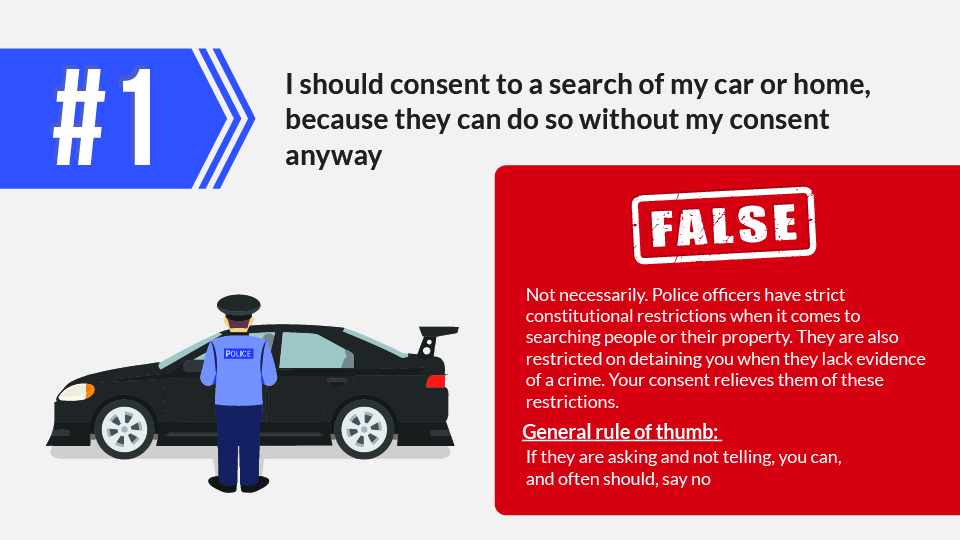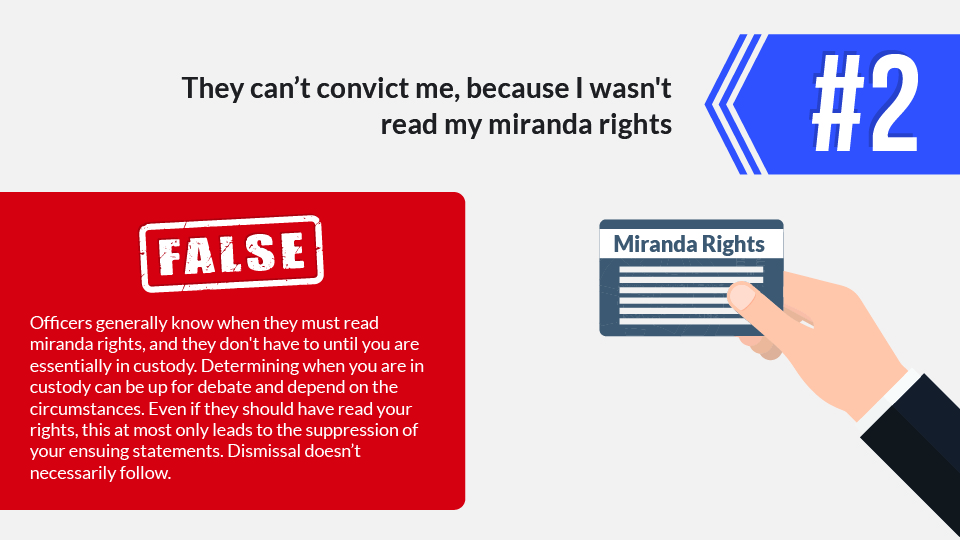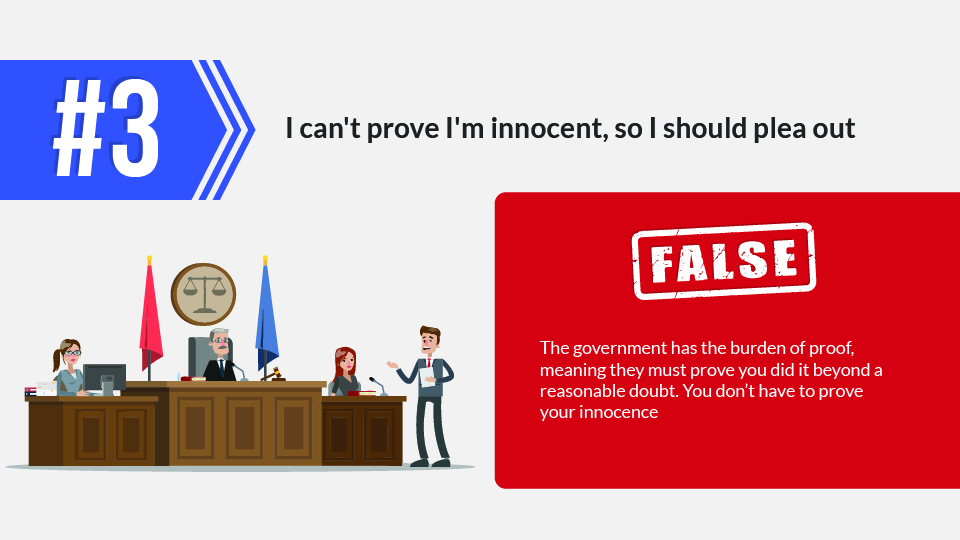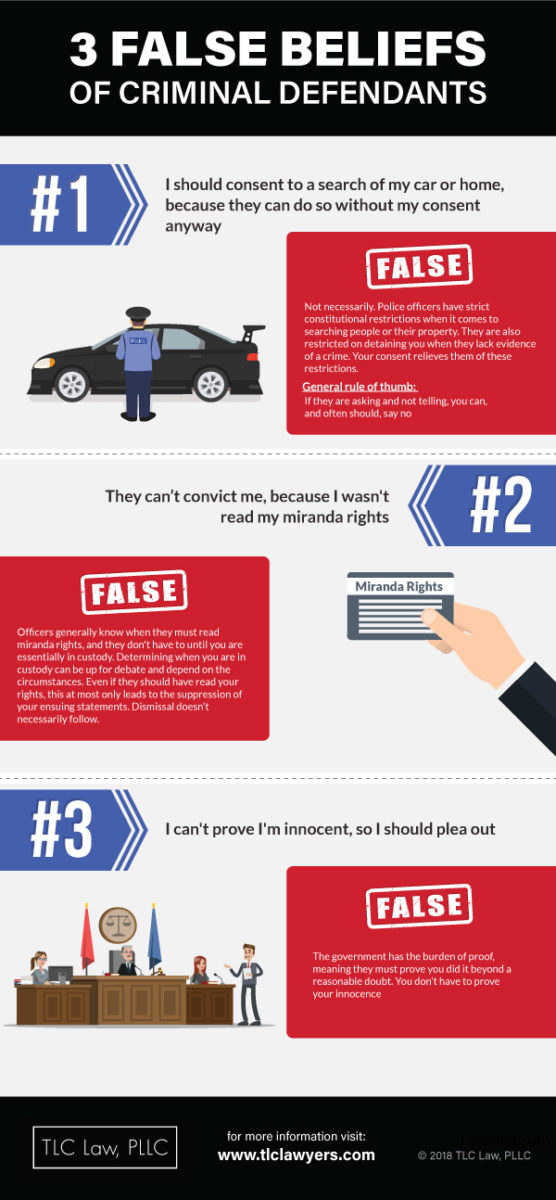Many of those who have been charged with a crime may be unknowingly giving up their rights due to some very common misconceptions. Learn about 3 of the most commonly held beliefs that are actually not true when it comes to criminal defense.
1) I should consent to a search of my car or home, because they can do so without my consent anyway
FALSE: Not necessarily. Police officers have strict constitutional restrictions when it comes to searching people or their property. They are also restricted on detaining you when they lack evidence of a crime. Your consent relieves them of these restrictions.
General rule of thumb: If they are asking and not telling, you can, and often should, say no

2) They can’t convict me, because I wasn’t read my miranda rights
FALSE: Officers generally know when they must read miranda rights, and they don’t have to until you are essentially in custody. Determining when you are in custody can be up for debate and depend on the circumstances. Even if they should have read your rights, this at most only leads to the suppression of your ensuing statements. Dismissal doesn’t necessarily follow.

3) I can’t prove I’m innocent, so I should plea out
FALSE: The government has the burden of proof, meaning they must prove you did it beyond
a reasonable doubt. You don’t have to prove your innocence

Full infographic:
View as slides:



